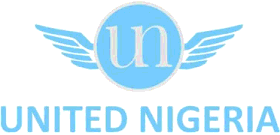 United Nigeria Airlines Embarks on Major Fleet Expansion with Boeing 737-800 Acquisition
United Nigeria Airlines Embarks on Major Fleet Expansion with Boeing 737-800 Acquisition
In a move set to reshape Nigeria’s domestic and regional aviation market, United Nigeria Airlines has announced a landmark agreement to acquire up to ten Boeing 737-800 aircraft from Southwest Airlines. The initial arrangement secures six aircraft, with the possibility of extending the deal to a total of ten. Deliveries are scheduled to commence in the first quarter of 2026 and conclude by the first quarter of 2027. This ambitious expansion marks a significant leap beyond the airline’s current fleet of ERJ-145 regional jets and signals a bold new direction for its operational strategy.
The acquisition represents a pivotal shift from United Nigeria Airlines’ previously stated plan, which had focused on integrating five Embraer E190 aircraft by mid-2025. By opting for the larger, more versatile Boeing 737-800, the airline demonstrates its intent to capture a greater share of the growing air travel demand in Nigeria and West Africa. For the region’s aviation community, this decision highlights the increasing importance of fleet modernization and capacity scaling in response to both competitive pressures and evolving passenger expectations.
The Boeing 737-800 is renowned worldwide for its reliability, efficiency, and flexibility. With the ability to accommodate more passengers and operate longer routes compared to regional jets, these aircraft will enable United Nigeria Airlines to significantly enhance its network reach. This move positions the airline to better serve Nigeria’s major cities, emerging secondary airports, and key regional destinations, while also opening the door to potential international routes in the future.
This strategic fleet upgrade comes at a time when Nigeria’s aviation industry is experiencing renewed growth and transformation. Rising middle-class incomes, urbanization, and government-supported infrastructure projects have led to higher travel volumes and increased demand for more robust airline services. By investing in aircraft with greater capacity and range, United Nigeria Airlines is poised to respond to these market trends and to participate more actively in both domestic and cross-border tourism and business travel.
The decision to work with Southwest Airlines, a globally respected operator known for its extensive 737-800 fleet, ensures that the aircraft United Nigeria Airlines will receive are well-maintained and proven in high-frequency operations. This partnership brings not only modern hardware but also valuable operational expertise, which can assist United Nigeria Airlines in scaling up its service standards and staff training. Such collaborations are increasingly essential as African carriers look to compete with international airlines and improve their operational reliability.
For travel sector professionals across sub-Saharan Africa, the implications of United Nigeria Airlines’ fleet expansion are far-reaching. Enhanced capacity on popular domestic routes means greater seat availability and potentially more competitive pricing, which could stimulate additional demand among both business and leisure travelers. The introduction of the 737-800s also allows for innovation in scheduling, improved on-time performance, and the potential for new direct services between Nigeria and other West African countries.
From an infrastructure perspective, the arrival of larger jets will necessitate further investment in airport facilities, ground handling, and support services. Airports across Nigeria and the wider region may see upgrades to accommodate increased passenger volumes and the operational requirements of the Boeing 737-800. This development aligns with broader trends of airport modernization and capacity building that are crucial for Africa’s aviation future.
Tourism stakeholders, in particular, should take note of the opportunities created by this expansion. With increased connectivity and the ability to offer direct flights to new destinations, United Nigeria Airlines can play a pivotal role in boosting inbound and outbound tourism flows. Hotels, tour operators, and destination management companies stand to benefit from the anticipated rise in visitor numbers, while the creation of new routes may help position Nigeria as a hub for both business and leisure travel in West Africa.
United Nigeria Airlines’ shift from a regional jet-focused fleet to a mix that includes larger narrow-body aircraft also reflects broader industry trends. As African airlines seek to capitalize on the continent’s strong demographic growth and economic potential, the adoption of versatile, fuel-efficient aircraft like the 737-800 becomes a key strategy. This approach supports network flexibility, operational cost savings, and the ability to respond quickly to changing market dynamics.
In the context of regional competition, this fleet expansion places United Nigeria Airlines in a stronger position to challenge both local and international carriers. The ability to offer more seats, improved comfort, and expanded route options could help the airline attract new customer segments and strengthen its brand presence. Furthermore, the scale achieved through fleet modernization can lead to better economies of scale, translating into potential cost efficiencies for the airline and its partners.
Looking ahead, the successful integration of the Boeing 737-800s will require United Nigeria Airlines to invest in pilot training, maintenance infrastructure, and customer service enhancements. The broader Nigerian aviation ecosystem will also need to adapt, ensuring that regulatory frameworks, safety standards, and airport operations keep pace with the airline’s growth. For industry players across Africa, this development serves as a reminder of the importance of strategic planning, partnership building, and investment in next-generation technologies.
With deliveries set to begin in 2026, the coming years will be critical for United Nigeria Airlines as it prepares to deliver on the promise of its expanded fleet. For the continent’s travel sector, this announcement underscores the ongoing transformation of African aviation and the exciting opportunities that lie ahead for those ready to embrace innovation and scale.
